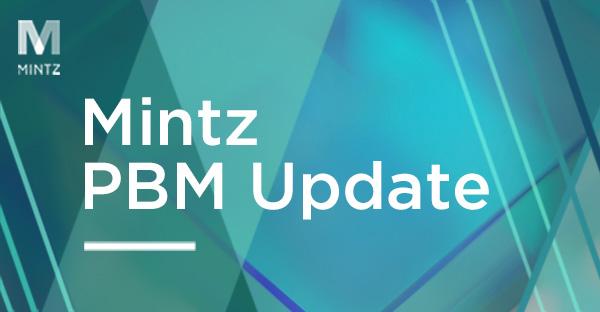
Bridgette advises clients in the health insurance industry, including managed care organizations, PBMs, and integrated delivery systems, ACOs, and providers on a variety of regulatory, fraud and abuse, and business planning matters. Her practice centers on compliance with federal health care program regulatory requirements, with a focus on reimbursement issues and value-based contracting.
Bridgette regularly counsels clients regarding risk-adjusted reimbursement programs and the practices that support them, including Medicare Advantage Organizations (MAOs) and ACOs participating in the Medicare Shared Savings Program (MSSP). Bridgette has experience conducting and defending investigations regarding fraud and abuse issues, including billing compliance related to Medicare, Medicaid, and TRICARE. She also works closely with discount medical plans (DMPOs) and other clients in the health care industry on matters relating to compliance with state regulations.
Bridgette is interested in value-based healthcare. She works closely with payors, providers, and ACOs, on a variety of innovative collaborations and has experience negotiating and papering these relationships.
With a background in health care operations, Bridgette is able to provide clients with practical insight that includes a focus on the business implications of health care regulatory and compliance, internal investigations, and fraud and abuse analyses of proposed new procedures. Bridgette applies her experience in health system administration and ethics in health care to her health law practice. Prior to practicing law, she worked as a health care ethicist at the Department of Veterans Affairs National Center for Ethics in Health Care (NCEHC) and held other health system operations positions within VHA.
Most recently, Bridgette began hosting Health Law Diagnosed, Mintz’s health law podcast and she is a frequent author on Mintz’s Health Law Viewpoints.
Experience
- Counsels clients regarding Medicare Advantage risk adjustment compliance, including responses to OIG and CMS RADV audits.
- Assists with communication and advocacy with federal health care program regulators, including CMS and the HHS OIG.
- Drafts and negotiates complex services agreements between health plans and PBMs.
- Monitors changes and developments in state laws that impact the PBM industry and other related stakeholders.
- Conducts internal investigations into potential fraud and abuse matters and manage multiple key stakeholders.
- Develops and implements compliance reviews to recommend and identify compliance best practices.
- Assisted with the defense and settlement of a five-year False Claims Act investigation conducted by multiple U.S. Attorney’s Offices and DOJ’s Civil Division on behalf of a national health care provider. We successfully convinced the Office of Inspector General for the Department of Health and Human Services not to pursue a Corporate Integrity Agreement.
- Represented a national health care provider in a False Claims Act investigation conducted by the U.S. Attorney’s Office for the Southern District of New York. The government ultimately declined to intervene, and the relator chose to voluntarily dismiss the case.
- Assisted with the defense of a diagnostics company in a national criminal and civil investigation involving multiple US Attorneys’ Offices and state Attorneys' General Offices. The investigation involved alleged kickback issues and billing violations.
viewpoints
Bioethics in a Pandemic: Draft Framework for Equitable Allocation of COVID-19 Vaccine
September 4, 2020 | Blog | By Bridgette Keller, David Friedman
Bioethics in a Pandemic: Laying the Foundation for the Draft Framework for Equitable Allocation of a COVID-19 Vaccine
September 3, 2020 | Blog | By Bridgette Keller, Lauren Moldawer
Bioethics in a Pandemic: Johns Hopkins Offers Ethics Framework to Support Vaccine Distribution Decisions
September 2, 2020 | Blog | By Bridgette Keller
Bioethics in a Pandemic: Learning from the Past
September 1, 2020 | Blog | By Bridgette Keller, David Friedman
Hot off the Presses! Draft Preliminary Framework for Equitable Allocation of COVID-19 Vaccine Just Released
September 1, 2020 | Blog | By Bridgette Keller, David Friedman
Though the turnaround time is short, there are two ways for interested stakeholders and member of the public to submit feedback regarding the draft plan:
1. Speak at TOMORROW’s Public Listening Session (September 2, 12 PM EDT). Speakers must adhere to a strict 5-minute time limit and submit their interest in speaking in advance.
2. Submit Written Comment by September 4 at 11:59 PM EDT. Comments and uploaded materials will be made available in the Committee’s Public Access File and should be submitted at this link.
Bioethics in a Pandemic: The Basics
August 26, 2020 | Blog | By Bridgette Keller, David Friedman
As you might imagine, providing health care to individuals with diverse background and values presents ethical choices for health care professionals every day, throughout the entire health care system – providers, administrators, policymakers, insurers, employers, and even the health care lawyers! Well-recognized bioethics scholars Tom Beauchamp and James Childress offer a principle-based approach to guide ethical decision-making in health care. The four principles are (1) Respect for Autonomy, (2) Nonmaleficence, (3) Beneficence, and (4) Justice.
Bioethics in a Pandemic: Vaccine Distribution
August 19, 2020 | Blog | By Bridgette Keller, David Friedman
GAO Studies Use of PBMs in Medicare Part D
August 27, 2019 | Blog | By Bridgette Keller
CMS Finalizes Medicare Advantage and Part D Drug Pricing Rule
May 28, 2019 | Blog | By Bridgette Keller, Daryl Berke, Lauren Moldawer
Surprise Medical Bills Gain National Attention
March 21, 2019 | Blog | By Bridgette Keller
News & Press
Twenty-nine Mintz Attorneys Named to 2023 New York Metro Super Lawyers List
September 22, 2023
NEW YORK – Mintz is pleased to announce that 18 attorneys have been named New York Metro Super Lawyers and 11 attorneys have been named New York Metro Rising Stars by Super Lawyers for 2023.
Twenty-six Mintz Attorneys Recognized as 2022 New York Super Lawyers and Rising Stars
September 29, 2022
17 Mintz attorneys have been named New York Metro Super Lawyers and nine Mintz attorneys have been named New York Metro Rising Stars by Super Lawyers for 2022.
podcasts
Health Law Diagnosed – Understanding the New Massachusetts Health Care Market Review Law
March 11, 2025 | Podcast | By Bridgette Keller, Deborah Daccord, Kate Stewart, Cassandra Paolillo
Host Bridgette Keller discusses the new Massachusetts Health Care Market Review Law and what this means for health care providers, investors, and other key stakeholders. She is joined by Member Deb Daccord, Of Counsel Cassie Paolillo, and Of Counsel Kate Stewart, who share their insights on the law’s far-reaching implications.
Health Law Diagnosed – New Year's Gratitude
February 3, 2025 | Podcast | By Bridgette Keller, Alison H. Peters, Samantha Kingsbury, Theresa Carnegie, Joanne Hawana, Abdie Santiago, Stephnie John, Pamela Polevoy, Karen Lovitch, Jean D. Mancheno, Deborah Daccord, Rachel A. Alexander, Jane Haviland, David Gilboa, Kathryn Edgerton, Hassan Shaikh, Madison Castle, Laurence Freedman, Priyanka Amirneni, Samantha Hawkins, Tara E. Dwyer, Rachel Yount, Sophia Temis, Xavier Hardy
Host Of Counsel Bridgette Keller invites the Mintz Health Law team to reflect on what they’re grateful for as they prepare for the year ahead. Hear from a dynamic group of Members, Of Counsel, and Associates as they share their perspectives on what’s coming up over the horizon.
Health Law Diagnosed – The 2024 Election and Health Care Policy
January 16, 2025 | Podcast | By Bridgette Keller, Alexander Hecht
Host Of Counsel Bridgette Keller is joined by Alex Hecht, ML Strategies Executive Vice President & Director of Operations, Washington, DC, as they dive into potential health care policy changes on the horizon following the 2024 election and what stakeholders can expect in 2025.
Events & Speaking
Legal, Ethical, and Practical Issues for Vaccine Credentials and Verification for Workplaces
Lawline
Online Event

Recognition & Awards
Included on the New York Super Lawyers Rising Star: Health Care list (2020-2023)
ABA-BNA Award for Excellence in the Study of Health Law
Involvement
- Member, American Health Lawyers Association (AHLA)
- Member, American Bar Association (ABA)
- Member, American College of Healthcare Executives (ACHE)






